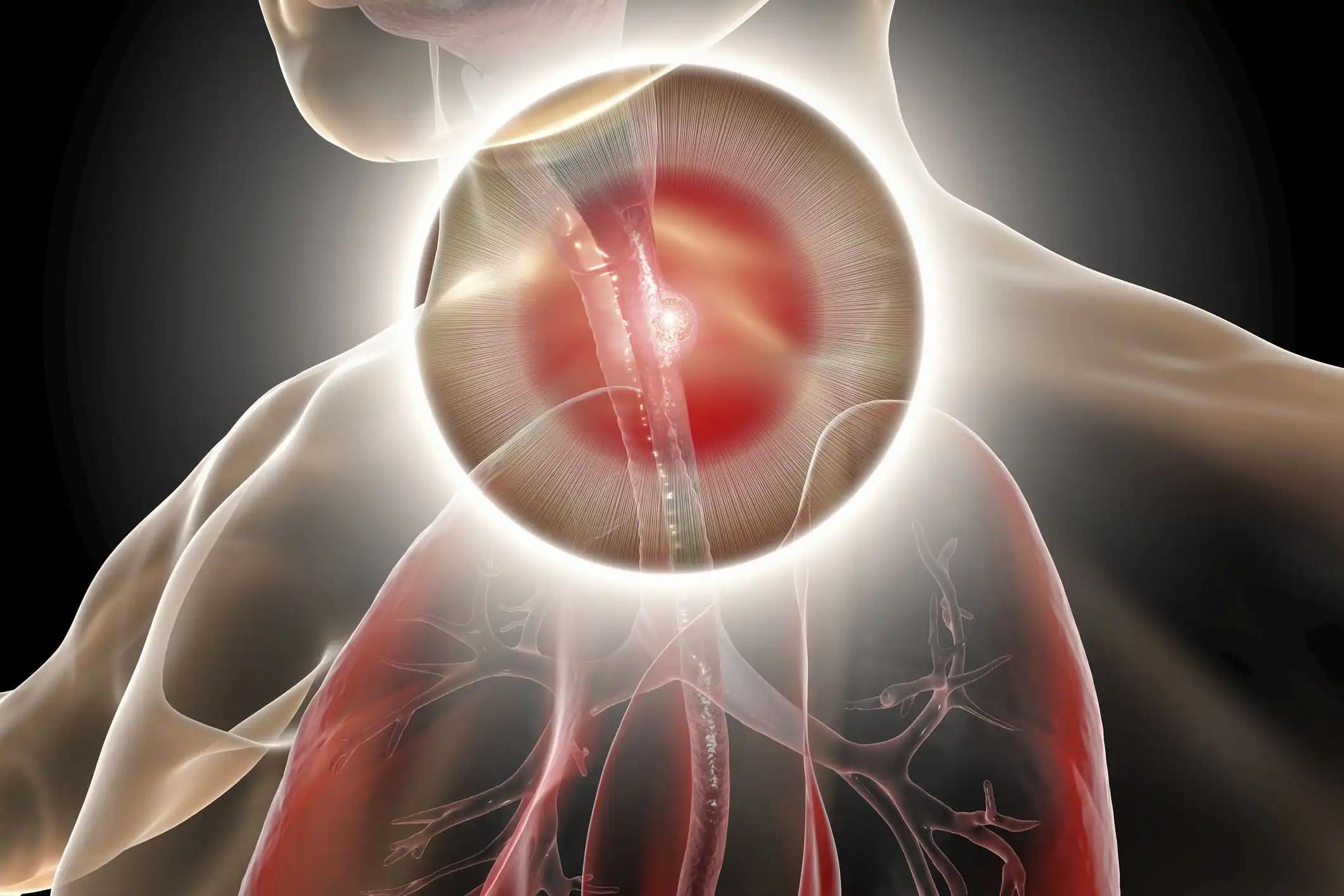KEY TAKEAWAYS
- The study aimed to investigate the association of SIPS with TRAEs and prognosis in patients with ESCC undergoing NICT.
- Researchers noticed that SIPS is a significant predictor of serious TRAEs and is correlated with DFS in patients with ESCC undergoing NICT.
Qiang Zhao and the team aimed to investigate the relationship between the Scottish inflammatory prognostic score (SIPS), treatment-related adverse events (TRAEs), and prognostication in patients with neoadjuvant immunochemotherapy (NICT) for esophageal squamous cell carcinoma (ESCC), a comprehensive study was conducted.
The SIPS, a marker of systemic inflammation, was evaluated for its potential to predict adverse events and overall prognosis in patients with ESCC receiving NICT. The study involved a detailed analysis of clinical data, adverse event reports, and disease-free survival (DFS) outcomes.
They performed an inclusive analysis on 208 patients with ESCC treated with NICT. This retrospective investigation aimed to examine the relationships between the SIPS, treatment-related adverse events (TRAEs), and prognosis, specifically DFS and overall survival (OS). Clinical data, adverse event reports, and survival outcomes were meticulously reviewed and analyzed to determine the predictive value of SIPS in this patient cohort.
About 208 patients with ESCC treated with NICT were categorized into 3 groups based on SIPS: 62 (29.8%) cases of SIPS0, 103 (49.5%) cases of SIPS1, and 43 (20.7%) cases of SIPS2. Among patients with SIPS2, the oldest age (P=0.006), lowest BMI (P=0.001), longest tumor length (P=0.001), most advanced ypT stage (P=0.014), and ypN stage (P<0.001) were identified. Pathological complete response (PCR) rates showed statistically significant variations between the three groups (SIPS0: 45.2%, SIPS1: 27.2%, SIPS2: 16.3%, P=0.004).
All TRAEs were observed in 63.9% (133 cases), with serious TRAEs (grade 3-4) accounting for 13.9% (29 cases). While TRAEs themselves were not linked with SIPS (P=0.668), serious TRAEs had a significant correlation with SIPS (P=0.002). Multivariate logistic analysis indicated that SIPS2 seemed to confer serious TRAEs [odds ratio (OR)=4.044; 95% CI: 1.395-11.722; P=0.010]. For patients classified as SIPS0, 1, or 2, the 3-year DFS was 83.9%, 58.3%, and 39.5% (P<0.001), respectively.
The 3-year OS for those with SIPS0, 1, or 2 was 88.7%, 72.8%, and 53.5%, respectively (P<0.001). SIPS was substantially correlated with DFS (but not with OS) and could be utilized as an independent predictor [SIPS2: hazard ratio (HR)=3.743, 95% CI: 1.770-7.914, P=0.001; SIPS1: HR=2.303, 95% CI: 1.149-4.616, P=0.019].
The study concluded that SIPS is associated with serious TRAEs and can be used as a predictor of serious TRAEs in ESCC receiving NICT. SIPS may be employed for pretreatment assessment since it was found to be substantially correlated with DFS.
The study received no funds.
Source: https://pubmed.ncbi.nlm.nih.gov/39035002/
Zhao Q, Wang L, Yang X, et al. (2024). “Association of the Scottish inflammatory prognostic score with treatment-related adverse events and prognosis in esophageal cancer receiving neoadjuvant immunochemotherapy.” Front Immunol. 2024 Jul 5;15:1418286. doi: 10.3389/fimmu.2024.1418286. PMID: 39035002; PMCID: PMC11257864.



